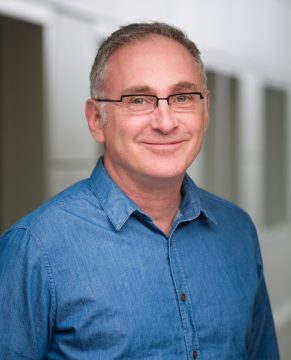Steven Woloshin, MD, MS, a professor of medicine, community and family medicine, and of The Dartmouth Institute for Health Policy and Clinical Practice at the Geisel School of Medicine, has received a grant from the Arnold Foundation to continue his work to train journalists for more reliable reporting on medical research.
The grant supports the continuation of Medicine in the Media, a decade-long program funded by the NIH that Woloshin developed with former research partner Lisa Schwartz, MD, MS, who passed away in 2018 and whose pioneering research helped improve the communication of medical information to physicians, policymakers, media, and the public.

Woloshin and Schwartz used the innovative and popular Medicine and Media program, which has been paused since 2012, to train more than 500 journalists from major media outlets in the U.S. and abroad.
“It’s an amazing opportunity and I’m really grateful to the foundation because it’s going to make it possible to restart this important work that Lisa and I did together along with my co-investigator Barry Kramer,” says Woloshin, who hopes to make the program self-sustaining in the future.
“Problems with health journalism are well-known—reporting is often exaggerated, oversimplified, lacking in context, or uncritical,” he explains.
“Many studies have documented that news about medical research often omits key information audiences need to understand the findings or decide whether to believe them.”
This matters, he says, because the media not only educates but also influences individuals’ health beliefs and behaviors, and policy makers’ actions. “Poor medical journalism harms individuals when it promotes unrealistic beliefs about health risks and treatment benefits, which can lead to wasteful or harmful health decisions,” Woloshin says. “And it harms public health when it promotes bad decisions by policy makers.”
The Medicine and Media program’s curriculum, which is offered in a comprehensive four-day workshop as well as half-day seminars, is designed to help journalists address many of the major challenges they face in reporting on medical research.
This includes enhancing their ability to grasp medical evidence and relate it in an understandable fashion, convey the strengths and limitations of common study designs and statistical analyses, and how to use patient anecdotes appropriately in medical stories. “We’ve also developed a set of tools, including tip sheets, online primers and practice modules, to help journalists do a better job of understanding and then communicating the results of research,” he says.
In addition to the Arnold Foundation grant to fund the Medicine in Media program, Woloshin has received a related grant from the National Institute for Health Care Management (NIHCM) to develop guidelines for journalists to follow when publishing press releases on medical research.
“One of the main sources for journalists are press releases, and they’re a key input to reporting,” says Woloshin, who conducted some of the first studies on the effectiveness of press releases with Schwartz. “We found that press release quality is highly variable and often poor. And that there is a very strong relationship between the quality of press releases and the quality of subsequent news stories.”
With support from the NIHCM grant, Woloshin will work with colleague Mary O’Keeffe, PhD, a postdoctoral researcher at the University of Sydney, Australia, to create a series of expert panels—which will include press officers, journalists, editors, members of the public, and researchers—to craft a set of guidances that can be tested and then broadly distributed.
“No one’s ever done this kind of research project before, focused on this key area of communication,” he says. “It’s very exciting to have the opportunity to help turn press releases into more valuable, useful, and reliable sources of information for journalists—and hopefully, improve the quality of the news.”
Founded in 1797, the Geisel School of Medicine at Dartmouth strives to improve the lives of the communities it serves through excellence in learning, discovery, and healing. The Geisel School of Medicine is renowned for its leadership in medical education, healthcare policy and delivery science, biomedical research, global health, and in creating innovations that improve lives worldwide. As one of America’s leading medical schools, Dartmouth’s Geisel School of Medicine is committed to training new generations of diverse leaders who will help solve our most vexing challenges in healthcare.